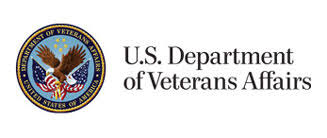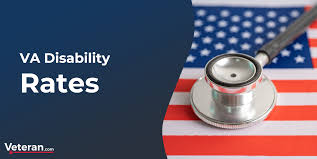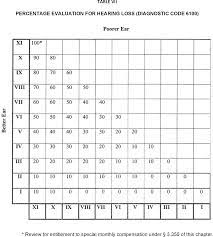The Role of Veterans Health Administration in Veterans Affairs
Within the larger framework of the Department of Veterans Affairs (VA), the Veterans Health Administration (VHA) plays a crucial role in providing healthcare services to eligible veterans across the United States. Established to fulfill the commitment of caring for those who have served in the U.S. military, the VHA operates one of the largest integrated healthcare systems in the country.
With a mission to honor America’s veterans by providing exceptional healthcare that improves their health and well-being, the VHA offers a wide range of medical services, including primary care, mental health care, specialty care, and long-term care. Through its network of hospitals, clinics, and other facilities, the VHA serves millions of veterans each year.
One key aspect of the VHA’s work is its focus on addressing the unique healthcare needs of veterans, including those related to service-connected disabilities, combat injuries, and exposure to environmental hazards during military service. The VHA also provides support for conditions such as post-traumatic stress disorder (PTSD), traumatic brain injury (TBI), and military sexual trauma.
In addition to direct healthcare services, the VHA plays a vital role in advancing medical research and innovation in areas relevant to veteran health. Through partnerships with academic institutions and other organizations, the VHA conducts research aimed at improving treatments and outcomes for veterans with a variety of health conditions.
Overall, the Veterans Health Administration is dedicated to upholding its commitment to serving those who have served our country. By providing high-quality healthcare services tailored to the unique needs of veterans, the VHA plays a critical role in supporting the health and well-being of America’s military veterans.
Understanding the Veterans Health Administration: Key Questions Answered
- What does the Veterans Health Administration do?
- What veterans are not eligible for VA health care?
- Who is in charge of the Veterans Health Administration?
- What are the 4 types of veterans?
- What does the VA Health Administration do?
- What is the difference between Veterans Affairs and Veterans Health Administration?
- Is Veterans Affairs the same as Veterans Health Administration?
What does the Veterans Health Administration do?
The Veterans Health Administration (VHA) is responsible for providing comprehensive healthcare services to eligible veterans in the United States. As a key component of the Department of Veterans Affairs (VA), the VHA operates a vast network of hospitals, clinics, and other facilities dedicated to meeting the medical needs of veterans. From primary care and mental health services to specialized care for service-related conditions, the VHA ensures that veterans have access to quality healthcare tailored to their unique needs. Additionally, the VHA plays a crucial role in advancing medical research and innovation aimed at improving treatments and outcomes for veterans. Overall, the VHA’s mission is to honor America’s veterans by delivering exceptional healthcare that enhances their health and well-being.
What veterans are not eligible for VA health care?
Certain veterans may not be eligible for VA health care. These include veterans who were dishonorably discharged from the military, those who did not serve the minimum required length of active duty service, and veterans whose income exceeds the VA’s financial thresholds. Additionally, veterans who do not have a service-connected disability or meet other specific eligibility criteria may also be ineligible for VA health care benefits. It is important for veterans to understand their eligibility status and explore alternative healthcare options if they are not eligible for VA services.
Who is in charge of the Veterans Health Administration?
The Veterans Health Administration (VHA) is overseen by the Department of Veterans Affairs (VA), which is a federal agency responsible for providing benefits and services to veterans. At the helm of the VHA is the Under Secretary for Health, who is appointed to lead the administration’s efforts in delivering healthcare to eligible veterans. The Under Secretary for Health works closely with a team of healthcare professionals, administrators, and staff members to ensure that veterans receive high-quality medical care through the VHA’s extensive network of facilities nationwide. Together, they are dedicated to upholding the VHA’s mission of honoring America’s veterans by providing exceptional healthcare services that improve their health and well-being.
What are the 4 types of veterans?
Within the realm of Veterans Affairs and the Veterans Health Administration, veterans are typically classified into four main categories based on their service and discharge status. These categories include wartime veterans, peacetime veterans, National Guard and Reserve members, and service-disabled veterans. Each category represents a distinct group of individuals who have served in the military under different circumstances, with varying eligibility for benefits and services provided by the VA and VHA. Understanding these classifications is essential for ensuring that veterans receive the appropriate support and care they deserve based on their service history and needs.
What does the VA Health Administration do?
The VA Health Administration, also known as the Veterans Health Administration (VHA), is responsible for providing comprehensive healthcare services to eligible veterans in the United States. The VHA operates a vast network of hospitals, clinics, and other facilities that offer a wide range of medical services tailored to the unique needs of veterans. These services include primary care, mental health care, specialty care, and long-term care. Additionally, the VHA conducts medical research aimed at improving treatments and outcomes for veterans with various health conditions. Overall, the VHA plays a crucial role in honoring America’s veterans by delivering exceptional healthcare that enhances their overall health and well-being.
What is the difference between Veterans Affairs and Veterans Health Administration?
The key difference between Veterans Affairs and Veterans Health Administration lies in their scope of services. Veterans Affairs (VA) is the overarching department responsible for providing a wide range of benefits and services to veterans, including education assistance, disability compensation, home loans, and more. On the other hand, the Veterans Health Administration (VHA) is a branch of the VA specifically focused on delivering healthcare services to eligible veterans. While VA covers a broader spectrum of support programs, VHA’s primary focus is on providing comprehensive medical care to veterans through its network of hospitals, clinics, and healthcare facilities.
Is Veterans Affairs the same as Veterans Health Administration?
Many individuals often inquire about the distinction between Veterans Affairs (VA) and the Veterans Health Administration (VHA) within the VA system. While both entities fall under the umbrella of the Department of Veterans Affairs, they serve different functions. The VA encompasses a broader scope of services beyond healthcare, including benefits, pensions, education assistance, and more. On the other hand, the VHA specifically focuses on providing healthcare services to eligible veterans through its network of hospitals and clinics. Therefore, while both are integral components of supporting veterans, the VHA’s primary mission centers around delivering quality healthcare to those who have served in the U.S. military.




